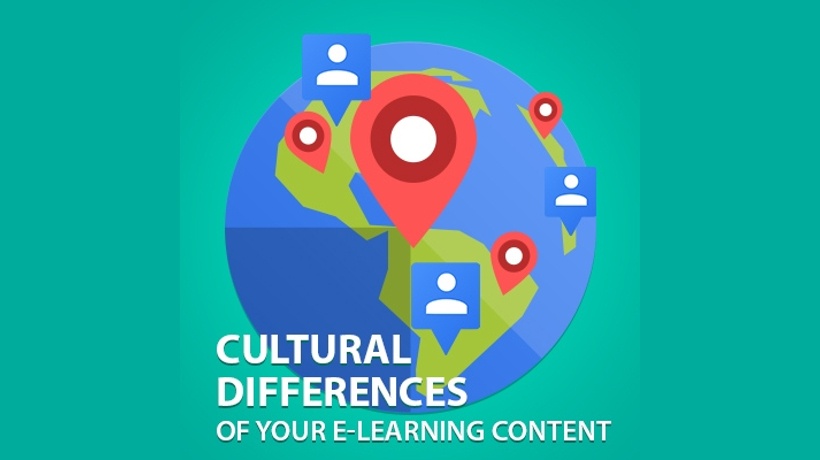6 Tips To Culturally Adapt Your Online Training Courses
Employees may be scattered all over the globe or based in the same location. Regardless of where they are or where their career path is heading, they’re all working toward a common goal. Which is to make your business a success and play their part in the process. But their needs and expectations branch off in many directions, making training cultural adaptation a top priority. How do you create meaningful remote employee training experiences that unite the team while still honoring their diversity? These 6 insider secrets can help you support remote staffers without singling them out.
1. Use Social Media To Reach Out And Survey The Team
Social media is a more casual way to interact with remote employees and get their input. You can learn more about their culture so that you don’t offend their beliefs or societal norms. The key is to respect their privacy while gathering crucial info. Conduct polls, post prompts, and host Q&As to delve into their backgrounds. This also gives them a chance to interact with co-workers and explore fresh perspectives. Try to keep group sizes small to fuel participation and make remote employees feel more comfortable. Live events are another effective way to survey the team in a less structured environment.
2. Hire An Insider To Oversee Training Localization
A localization expert knows the ins and outs of the culture. What images to use and avoid. How to incorporate personal anecdotes and stories into the curriculum that resonate with employees. As well as subtle nuances that personalize the experience and align with their professional goals. They also come in handy for compliance issues, as they’re aware of the local rules and regulations that impact work processes. Ideally, the insider should have a similar background as your target audience and a basic understanding of the subject matter. You can even choose a member of the staff to serve in a consulting capacity.
3. Invest In A Multilingual LMS And Translation Services
It’s not just the content you have to worry about when designing culturally appropriate online training. The course should also be in the employees’ native language so that everything retains the same context. Invest in a multilingual LMS and hire a translator to ensure the text is on-point. They may have to substitute popular sayings or cultural references for training cultural adaptation. For example, an old adage in English loses all meaning in another language. "A horse of a different color" might confuse remote employees instead of helping them assign meaning or context.
4. Don’t Let Humor Get Lost In Translation
Humor is one of the most challenging things to incorporate into your online training course. Something that makes one employee laugh will offend another. At best, it may fall flat and diminish the value of the course. When in doubt, leave it out. If the joke or witty remark is questionable, err on the side of caution. That said, you can also have your trusty translator find a suitable replacement that retains the same meaning. Above all else, never make quips that rely on stereotypes. Even if it’s at the expense of customers who won’t even see the training content. The goal is to create an inclusive training environment, not to insult employees by generalizing their habits or personality traits.
5. Develop Learner Personas
Analyzing the group as a whole can be overwhelming. Especially if you have a large remote workforce in different regions of the globe. Thus, culturally appropriate online training starts with learner personas or profiles. You’re able to identify what each demographic needs and expects from remote employee training. As well as how to address their job requirements and gaps from a cultural standpoint. For example, one group consists of employees in a country with strict dress codes or societal beliefs. You can develop training resources that cover all the basics and provide support without pushing them out of their comfort zone. The images feature their usual garb and simulations feature characters and dialogue that feels natural to them. This is yet another area where the localization insider can help. They’re able to specify personality traits and cultural norms the group has in common.
6. Evaluate LMS Metrics To Gauge Their Expectations
A demo video you posted last month isn’t getting much traffic. Employees in certain parts of the world seem to opt for other resources, such as examples and tutorials. You know this because LMS metrics gauge employee engagement and participation. Reports help you determine which activities/courses are popular and which cross the line in terms of culturally appropriate online training. Follow up with surveys and questionnaires to diagnose the root cause and modify the content accordingly. For instance, you discover that the demo video contains offensive images or gestures. Or that the dialogue is unrealistic thanks to poor dubbing. Low assessment scores can also indicate there’s a problem with cultural context. They fail the exam because they don’t understand the subject matter or something was lost in translation.
Creating Culturally Appropriate Online Training Courses For Your Remote Workforce
Online training cultural adaptation isn’t a quick fix that can be done in a day. It may even involve a significant investment or a complete training needs analysis. You must evaluate your entire strategy to look for areas of improvement, such as images that may be suggestive in certain regions. Even if they are innocuous in other parts of the globe. Hire a localization expert to create guidelines, then use social media to open lines of communication. You should also choose a multilingual LMS so that every member of the team can access online resources.
Are you looking for an eLearning content provider who can help with the cultural adaption of content? Our online directory simplifies the search. Find a partner who specializes in your industry and training niche today.








